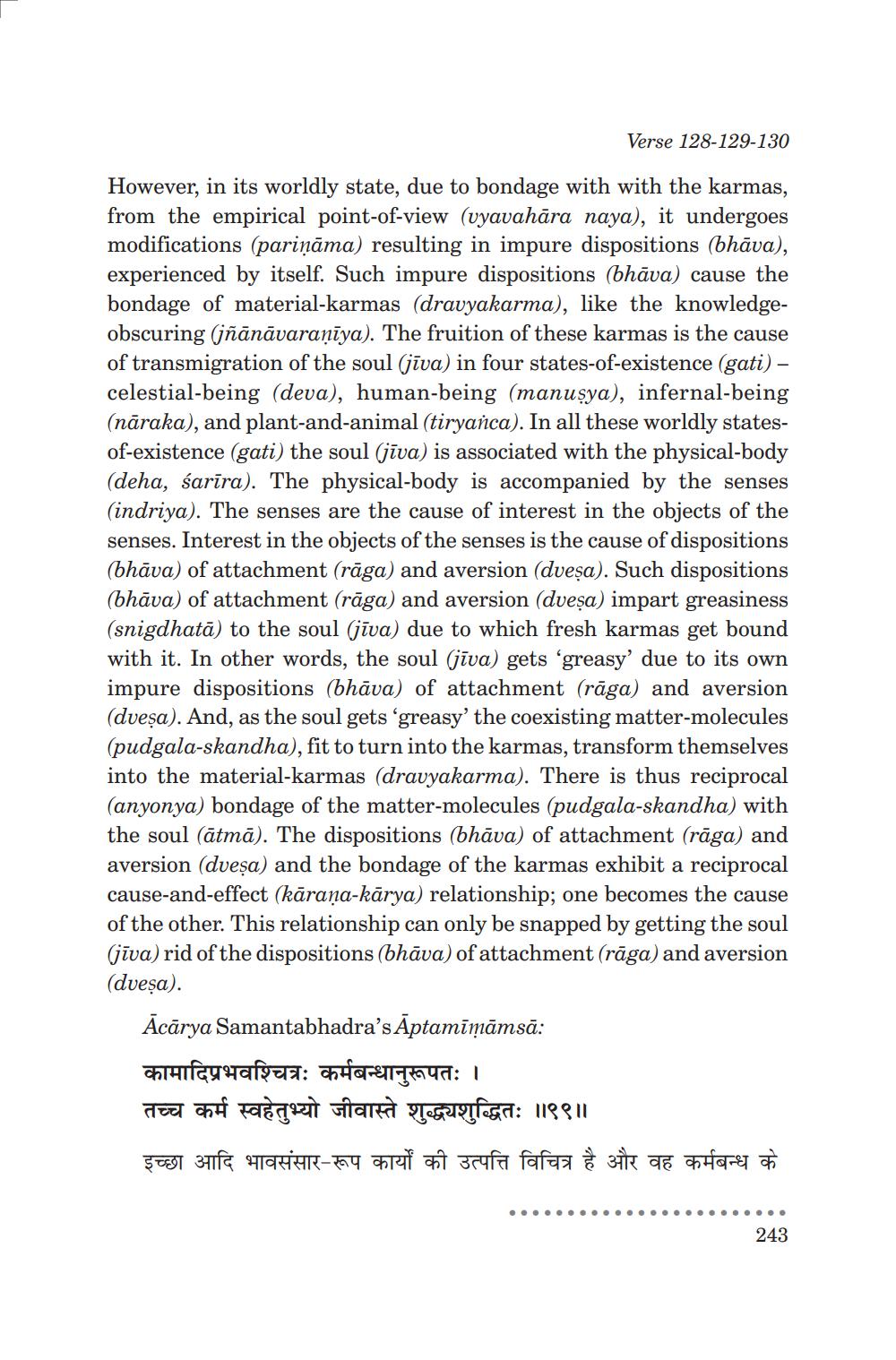________________ Verse 128-129-130 However, in its worldly state, due to bondage with with the karmas, from the empirical point-of-view (vyavahara naya), it undergoes modifications (parinama) resulting in impure dispositions (bhava), experienced by itself. Such impure dispositions (bhava) cause the bondage of material-karmas (dravyakarma), like the knowledgeobscuring Gnanavaraniya). The fruition of these karmas is the cause of transmigration of the soul (jiva) in four states-of-existence (gati) - celestial-being (deva), human being (manusya), infernal-being (naraka), and plant-and-animal (tiryanca). In all these worldly statesof-existence (gati) the soul (jiva) is associated with the physical-body (deha, sarira). The physical-body is accompanied by the senses (indriya). The senses are the cause of interest in the objects of the senses. Interest in the objects of the senses is the cause of dispositions (bhava) of attachment (raga) and aversion (dvesa). Such dispositions (bhava) of attachment (raga) and aversion (dvesa) impart greasiness (snigdhata) to the soul (jiva) due to which fresh karmas get bound with it. In other words, the soul (jiva) gets 'greasy' due to its own impure dispositions (bhava) of attachment (raga) and aversion (dvesa). And, as the soul gets 'greasy' the coexisting matter-molecules (pudgala-skandha), fit to turn into the karmas, transform themselves into the material-karmas (dravyakarma). There is thus reciprocal (anyonya) bondage of the matter-molecules (pudgala-skandha) with the soul (atma). The dispositions (bhava) of attachment (raga) and aversion (dvesa) and the bondage of the karmas exhibit a reciprocal cause-and-effect (karana-karya) relationship; one becomes the cause of the other. This relationship can only be snapped by getting the soul (jiva) rid of the dispositions (bhava) of attachment (raga) and aversion (dvesa). Acarya Samantabhadra's Aptaminamsa: कामादिप्रभवश्चित्रः कर्मबन्धानुरूपतः / तच्च कर्म स्वहेतुभ्यो जीवास्ते शुद्धयशुद्धितः // 19 // इच्छा आदि भावसंसार-रूप कार्यों की उत्पत्ति विचित्र है और वह कर्मबन्ध के . . . . . . . . . . 243




